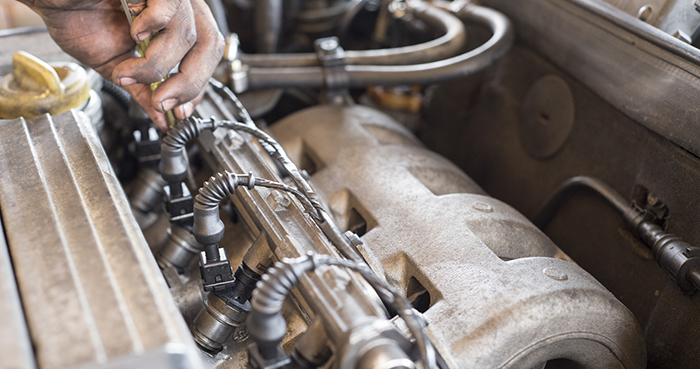Replace a fuel injector when it becomes clogged or inefficient, causing poor engine performance and fuel economy. Maintaining a properly functioning fuel injection system is crucial for optimal engine performance and efficiency.
When fuel injectors become clogged or fail to deliver the right amount of fuel to the engine, it can lead to a host of problems. These include reduced power, poor acceleration, increased emissions, and decreased fuel economy. Recognizing the signs of a failing fuel injector is important to prevent further damage to your vehicle and ensure that it continues to perform at its best.
We will explore the common symptoms of a failing fuel injector, as well as when it’s time to replace them to keep your engine running smoothly.
How Do I Know If My Fuel Injectors Need Replacing?
Determining when to replace fuel injectors is an essential aspect of maintaining your vehicle’s performance.
Several signs can indicate that your fuel injectors may need replacing.
- Firstly, if you notice a decrease in fuel economy, where you have to fill up the tank more frequently, it could be a sign of faulty injectors.
- Additionally, a rough idle or misfiring engine might indicate that the injectors are clogged or not functioning correctly.
- Another warning sign is a significant drop in acceleration power, making it harder for the vehicle to pick up speed.
- Lastly, if you experience engine stalling or hesitation when pressing the gas pedal, it’s advisable to have your fuel injectors checked.
Being aware of these indications and promptly addressing any issues can help maintain your vehicle’s performance and prevent potential damage.
What Is The Lifespan Of A Fuel Injector?
A fuel injector typically has a lifespan of around 50,000 to 100,000 miles.
However, several factors can influence its longevity.
- Firstly, the quality of fuel being used is crucial. Low-quality fuel or contaminants can lead to the clogging of the injector.
- Secondly, regular maintenance and cleaning of the injector are necessary to prevent build-up and ensure optimal performance.
- Additionally, driving habits play a role. Frequent short trips or aggressive driving can cause the injector to degrade faster.
- Lastly, the age of the vehicle also impacts the lifespan of the injector.
As the vehicle gets older, the chances of the injector failing or needing replacement increase. It is important to keep an eye out for symptoms such as misfires, rough idling, reduced fuel efficiency, and engine performance issues. If these signs appear, it is recommended to have the injector inspected and possibly replaced by a professional mechanic.
Are Fuel Injectors Worth Replacing?
Fuel injectors play a crucial role in the functioning of a vehicle’s engine. Over time, however, they can become worn or damaged. So, when should you replace them?
Well, there are a few signs to look out for.
- First, if your engine is misfiring or stalling, it could be a sign of faulty fuel injectors.
- Second, if you’re experiencing poor fuel efficiency, it may be time to replace them.
- Third, if you notice a strong smell of gasoline or see black smoke coming from the exhaust, this could also indicate a problem with the injectors.
- Lastly, if you’ve had your vehicle for a substantial amount of time and haven’t replaced the injectors, it’s worth considering as a preventative measure.
By closely monitoring the performance of your vehicle and keeping an eye out for these signs, you can determine when it’s time to replace your fuel injectors.

Credit: fuelpumpu.com
Frequently Asked Questions For When To Replace A Fuel Injectors
Is It Better To Clean Or Replace Fuel Injectors?
Fuel injectors should be cleaned instead of replaced whenever possible. Cleaning them regularly helps remove impurities, improve fuel efficiency, and maintain engine performance. Replacement should only be considered if cleaning proves ineffective or if injectors are damaged beyond repair.
Conclusion
Ultimately, the decision to replace fuel injectors should be based on a careful evaluation of the signs and symptoms discussed in this blog post. By paying attention to issues such as poor fuel economy, engine misfires, and decreased performance, you can determine whether it’s time to invest in new fuel injectors.
Regular maintenance and inspection of your fuel system will ensure optimal performance and efficiency in your vehicle. Don’t wait for a complete breakdown; replace your fuel injectors as needed to keep your engine running smoothly.
